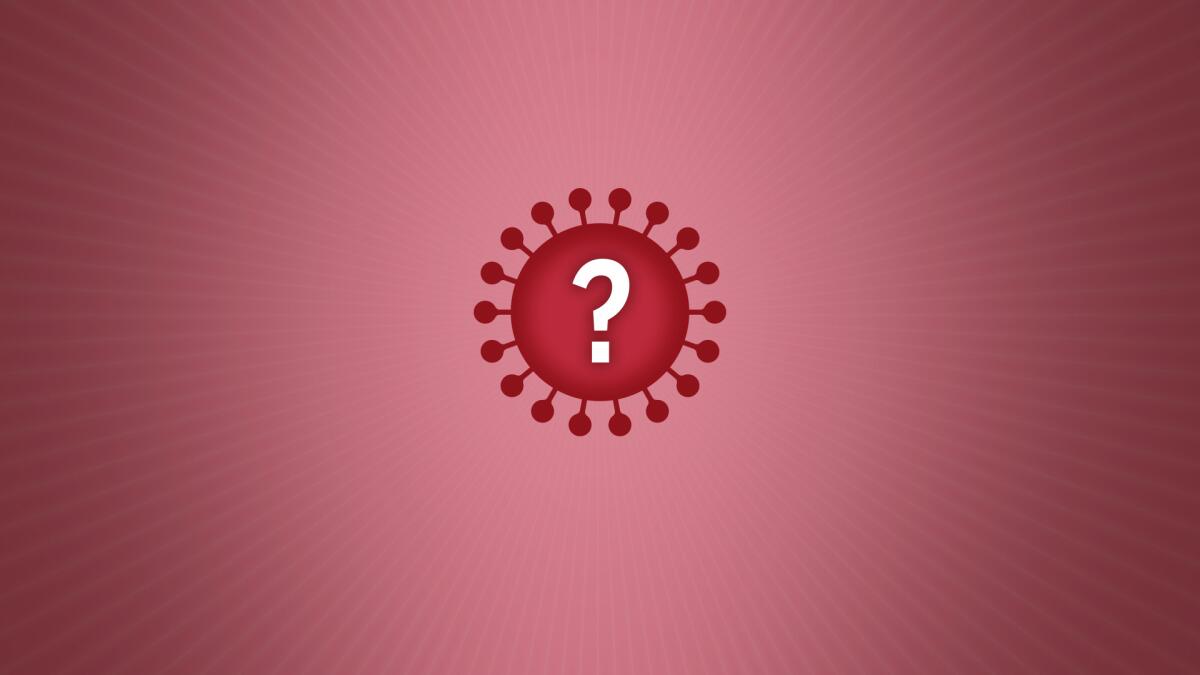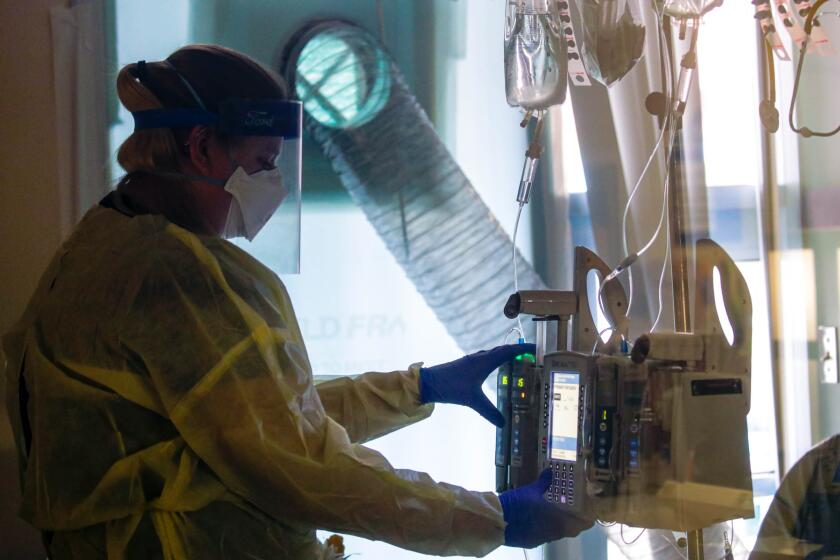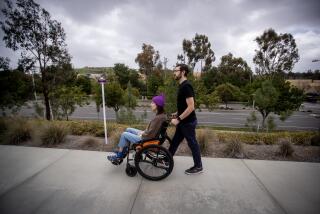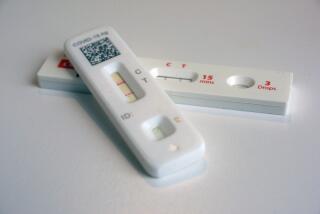Can you get ‘long COVID’ after an Omicron infection? Here’s what we know

- Share via
Can you get “long COVID” after an infection with the Omicron variant of the coronavirus?
It’s too early to know for sure, but many doctors believe it’s possible to suffer long-term effects from the Omicron variant.
Long COVID is usually diagnosed many weeks after a bout with COVID-19. Any long-lasting effects typically appear about 90 days after symptoms of the initial infection go away, Maria Van Kerkhove of the World Health Organization said this week.
Overall, some estimates suggest that more than one-third of COVID-19 survivors will develop some symptoms of long COVID, which include fatigue, brain fog, shortness of breath, anxiety and other problems. The lingering illness is more likely if you’ve been hospitalized with COVID-19, but research shows it can happen even after a mild infection.
Omicron began its rampage around the world late last year. The variant generally causes milder illness than the Delta variant of the coronavirus, but has still overwhelmed hospitals.
Van Kerkhove said she hasn’t seen any research indicating that the proportion of COVID-19 survivors who get long COVID will change with the Omicron variant.
There remains considerable debate about the pandemic’s trajectory, but scientists generally say it’s too early to declare an ‘endgame’ for COVID-19.
Dr. Linda Geng of Stanford University, who co-directs one of the many clinics specializing in long COVID, said that, although she couldn’t be certain, a new wave of patients was likely.
“We have to be very cautious and very careful and prepared,” Geng said.
In the meantime, scientists are racing to figure out what’s behind the mysterious condition. Some theories: It may be an autoimmune disorder, tiny micro-clots may be causing the disabling symptoms, or latent viruses in the body may have been reactivated.
Scientists are also looking at whether vaccines could be part of the answer. A Yale University team is studying the possibility that vaccination might reduce long COVID symptoms. And two other studies offer early evidence that being vaccinated before getting COVID-19 could help prevent the lingering illness or at least reduce its severity.
More to Read
Sign up for Essential California
The most important California stories and recommendations in your inbox every morning.
You may occasionally receive promotional content from the Los Angeles Times.











